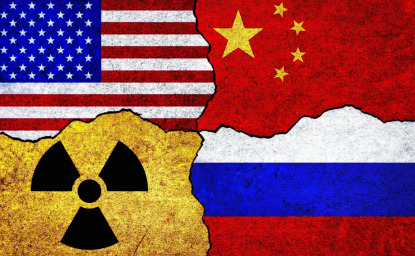Singapore is one of the best run countries in the world. It is prosperous, clean and forward looking. The city-state has a specific type of democracy, which was on display earlier this month when former Deputy Prime Minister and Finance Minister Tharman Shanmugaratnam was elected president.
The president’s role is largely advisory and ceremonial, but the office does have an important responsibility as a guardian of the country’s vast monetary reserves. There was some speculation that Tharman (as he is widely referred to by Singaporeans), a popular and experienced career civil servant, might fail to command a majority in the election. The conventional wisdom is that the “establishment” candidate should assume 30% of voters will decide on someone else. In the end, Tharman captured 70.4% of the votes.
The result was a triumph not only for Tharman but also for Prime Minister Lee Hsein Loong and his People’s Action Party. Prime Minister Lee, who has been in office since 2004, is one of Asia’s most respected leaders. He skillfully handled Singapore’s response to both the 2008-09 financial crisis and the pandemic, and he has shrewdly managed relations with the country’s two most important allies, the United States and China. He is also the oldest son of Lee Kwan Yew, the founder of the country and one of the great statemen of the 20th century. To govern so well while in the shadow of a legend who also happens to have been your father cannot have been easy.
It is widely believed that Mr. Lee, 71, will leave his post next year or the following year. The convincing victory of Tharman, his ally, makes this easier for him. As does the fact that his likely successor as leader of the PAP and as Prime Minister, Lawrence Wong, is experienced and able. The US-educated Mr. Wong, 50, serves as both the deputy prime minister and the finance minister and earned kudos for his handling of the pandemic.
Not everyone in Singapore is thrilled about the line of succession approach to running the country or the PAP’s domination of the political landscape. Mr. Wong would be the country’s fourth prime minister since independence in 1965 and some mockingly refer to his looming ascent as 4G.
The Singaporean political model is different from that of the US and may not be everyone’s cup of Oolong. But in recent years, we’ve seen quite a lot of poor leadership elsewhere. The measured, responsible stewardship of Singapore’s leaders looks pretty good by comparison.
For decades, Singapore and the US have cooperated closely. Singapore is one of the first countries with which the US negotiated a free trade agreement. Signed in 2004, it has held up well. Singapore, now the 18th largest trading partner with the US, is one of the few advanced countries with which the US has a trade surplus.
The strong bonds are not only economic. A 30-year agreement between the two countries grants the US military access to Singapore’s air and naval bases. Just last year, the aircraft carrier USS Ronald Reagan docked in Singapore for a few days. Visuals like this are an important symbol of US engagement.
Personal connections matter too. Deputy Prime Minister Wong earned bachelor’s and master’s degrees from the Universities of Wisconsin and Michigan, as well as Harvard. He retains close relationships with many Americans. Prime Minister Lee not only earned a master’s degree from the JFK School at Harvard, but also attended the US Army Command and General Staff College at Fort Leavenworth in 1978.
Singapore has been, and continues to be, one of Washington’s closest friends in Asia. As the country’s leadership goes through its transition, it will be vitally important for Washington to underscore its friendship and its commitment. Asia can be a rough neighborhood, and good friends should never be taken for granted.
Author

Director of the Information and External Relations Division and Chief Spokesman at the World Trade Organization (retired)

Wahba Institute for Strategic Competition
The Wahba Institute for Strategic Competition works to shape conversations and inspire meaningful action to strengthen technology, trade, infrastructure, and energy as part of American economic and global leadership that benefits the nation and the world. Read more

Explore More
Browse Insights & Analysis
US Inaction Is Ceding the Global Nuclear Market to China and Russia

Promoting Convergence in US-Brazil Relations




